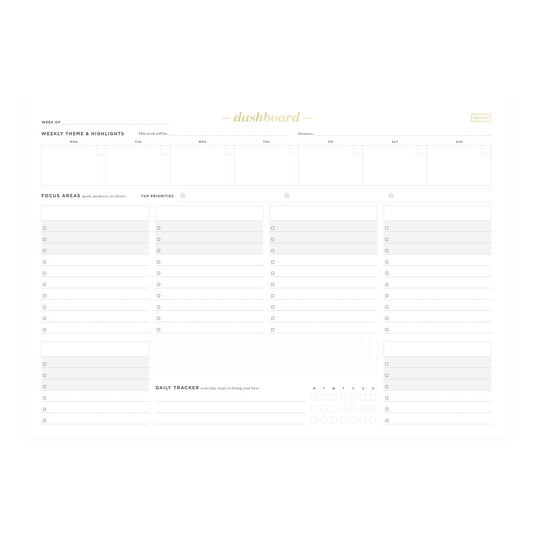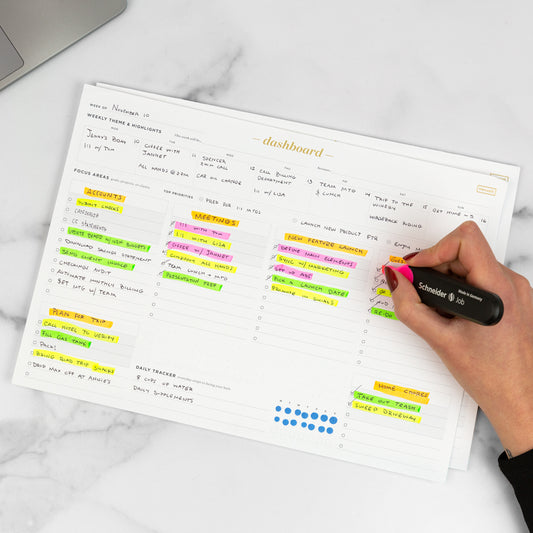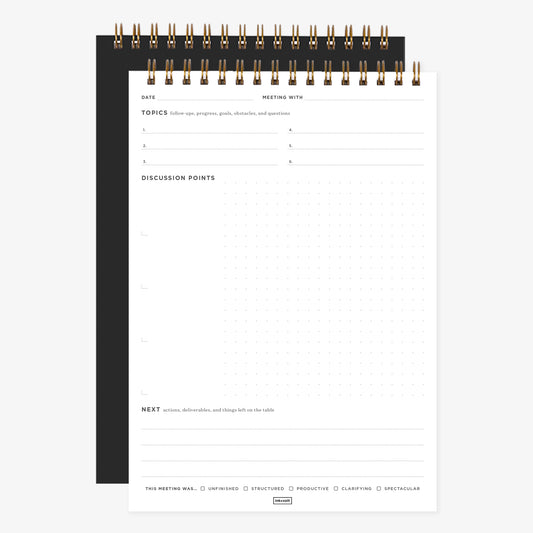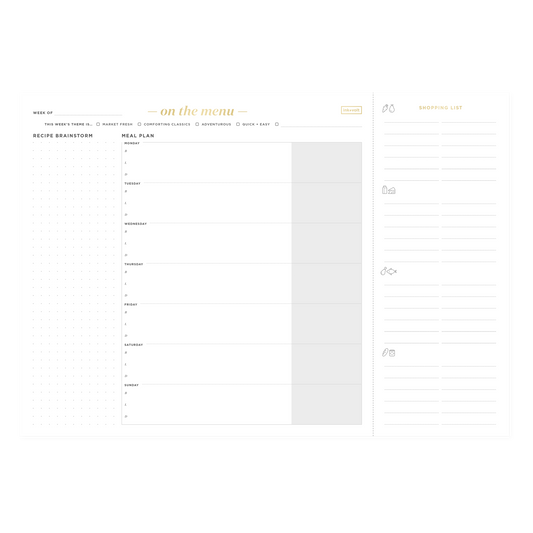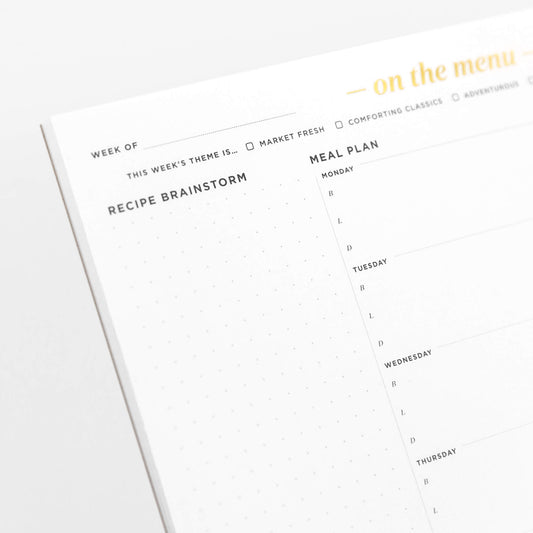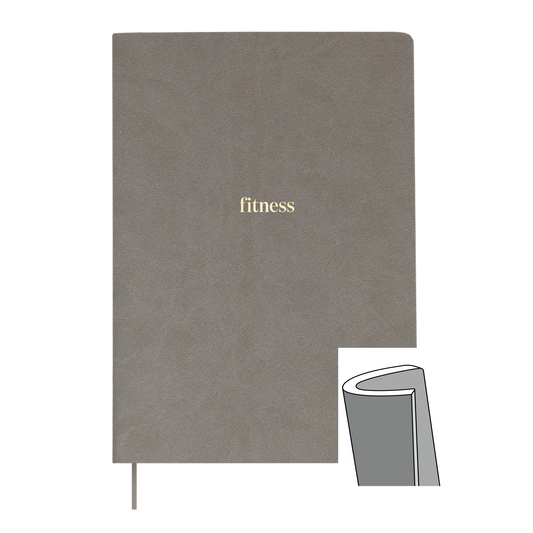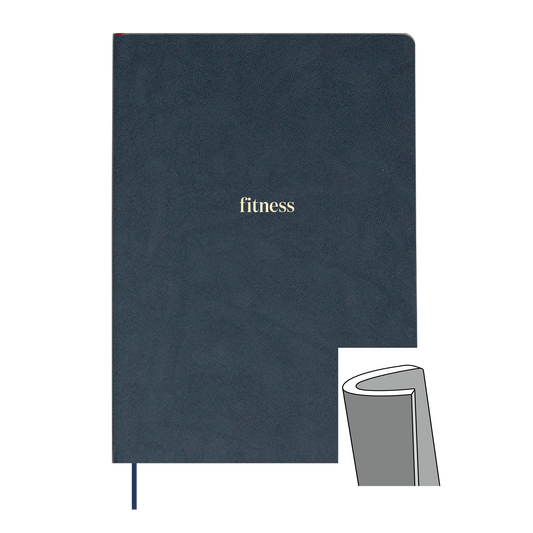When people imagine the freelancing life, they picture peaceful and slow days, with coffee and journaling in the morning, or taking a break in the middle of the day just because.
But the reality is quite different.
Yes, you get to set your own terms, create your own hours, define your priorities, and skip the long, draining commute.
But then there are the deadlines. The work hours that bleed into your personal time. The juggling lots of different clients--or working hard to find them and trying to win them over.
And all of that great freedom can also result in professional paralysis or, gulp, laziness. With no one to answer to, who’s to say you can’t sleep in till noon or postpone a deadline indefinitely?
If you’ve been feeling sluggish or having trouble feeling productive as a freelancer, have no fear. Here are some productivity tips and tricks to help you jumpstart your workflow, while gaining more flexibility in your schedule.
Want to be more productive as a freelancer? Set big goals
As freelancers, we don’t usually have to align ourselves with the strategic vision or goals of our clients. We're usually involved in the short term, solving one problem or establishing one new practice.
On the other hand, not being tethered to someone else’s goal or vision can be pretty liberating--you have the freedom to go after goals that are meaningful to you.
But on the one hand, the absence of an overarching corporate goal can make us feel lost at sea--we don’t always know what we’re striving for, or what direction we should be moving in.
However, even though you're a team of one, you can still take a cue from big organizations and set goals that are ambitious. Think about it, companies like Apple or Google would never set the bar low or strive for producing a mediocre product. Of course, we don’t all have Apple’s resources, but maybe we can channel their spirit of boldness into our own goals.
Create big goals that energize you and inspire your creativity and imagination. What would push you to deliver results above and beyond what you are currently capable of?
Write them down in your planner to stay committed. These goals will give you a strong sense of purpose, and it’s much easier to feel productive when you are working towards something, as opposed to just completing tasks.
Build a routine
As a freelancer, you don’t have to punch in a clock, day in and day out, or report to anyone, which can be nice; but at the same time, the lack of schedule or strict responsibilities feel overwhelming. When we don’t have a set schedule, we have a hard time negotiating all the hours in a day. What should we do? And when should we do it?
Decision fatigue is real, and its effects can compound over weeks and months of having to be the sole person making every decision in your business.
If you struggle with having too much time or if you suffer from not knowing where to start, try to build structure into your day . Use a notepad to define your morning, afternoon, and evening schedule. Maybe this means having a regular morning routine before starting your work hours: time for coffee, journaling, and setting your priorities for the day. The afternoon can be reserved for deep work and your essential tasks. And evenings can be for personal time or study.
After creating a schedule, choose your top 3 priorities for the day and set out to achieve them. This way, you are narrowing your focus to the most important things, and making sure they get done. Quality over quantity.
By creating these parameters, you’ll always know what to do and when. Plus, having fewer tasks in your day allows you to be flexible when urgent work matters or schedule changes arise.
Having a predetermined schedule also ensures that you don't work around the clock and risk burning out, which is essential as a freelancer. When you get your 3 items done, you will know you have made an impact, which gives you the go-ahead to be done for the day when you're ready.
And with time, you’ll start to notice patterns in your energy levels and you can then adjust your schedule accordingly--your important work can be aligned with your peak energy times, and your simple, no-brainer tasks are slotted for your low energy times.
Work in small blocks of time or sprints
So much of productivity involves motivating yourself to get things done, especially for freelancers since you won’t always have external deadlines or pressure to get the adrenaline going. If you find yourself in a productivity slump, try telling yourself that you’ll just work for 15 minutes. Pick an assignment that you’ve been putting off, set a timer, and just do as much as you can in 15 minutes. If you find yourself being able to work longer, then keep going. But just do the bare minimum at first, and eventually work your way up.
You can also borrow a trick from writers who like to jumpstart their writing routine with “sprints.” Set a timer for 15 or 20 minutes and try to work as fast as you can. When you know that you have a 15-minute time limit, you’ll be much more focused, and you’ll force yourself to tune out distracting or self-sabotaging thoughts.
It’s much easier to get started on a project when the first step is super small and achievable. Then, once you build momentum, you’ll be able to keep going and increase your productivity.
Create a project to-do list
As a freelancer, you’re often balancing multiple projects and deadlines for different clients. The reflex might be to create a master to-do list with all of your tasks, but this might not capture all the specific tasks and timelines, thereby creating confusion. Instead, create a separate to-do list for each project.
You can use the Ink+Volt Dashboard Pad to manage multiple projects and give them their own specific “bucket” to keep track of all the different tasks, deadlines, meetings, assignments, etc.
Having these project to-do lists gives your day-planning more cohesion and specificity. When you know what exactly you have to do and when, you’ll have an easier time achieving it.
Create an “autopilot” to-do list
On days when you’re feeling low energy and unproductive, make it easy on yourself and create an “autopilot” to-do list.
Do things that won’t tax you emotionally or energetically. In other words, tasks that you can practically do with your eyes closed and that allow you to run on autopilot. Not only will you be able to knock out a bunch of tasks, you’ll get to feel productive without having to overextend yourself.
These tasks aren't procrastination; rather, they are opportunities to relax your mind. You might find that your best ideas pop up during these autopilot activities, when your mind is free to make connections.
Some basic, autopilot tasks can include:
- Updating your website
- Doing the dishes
- Taking out the recycling
- Organizing your digital space
Hold your own mini retreat
If you’ve ever worked for a big company, you know that they regularly have corporate retreats and planning sessions to conduct a review of the organization’s goals, strategies, and performance.
As a freelancer, why not hold your own mini retreat or planning session? Just because you work for yourself doesn’t mean you can’t review your own goals and progress, and set aside time for checking in on your growth.
It’s even more important to hold reviews as a freelancer, because no one else is going to do it for you. Are you growing? Stuck in one place? Often, it is only when we pause that we can get clear on what's bothering us about our work or where we are aching to grow.
So set aside a date and time to hold your retreat. You can even try to make it as close to a real retreat as possible and have fun with it. Have coffee and pastries or healthy snacks on hand to fuel you. Get out of town and rent a secluded house, with no distractions. Get a whiteboard and markers to outline your goals and milestones. Do a mind map to brainstorm future goals or strategies.
During this mini retreat, ask yourself the following questions:
- What have you accomplished?
- What did you not accomplish, fall short of?
- What are things that are working?
- What are things that are not working? Can they be modified or replaced? Or should they be abandoned altogether?


